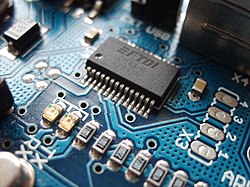11th September,2012
OUR FIRST CLASS WITH OUR LECTURER
First of all, I want to say that this blog for our Electronic System Engineering course. For those who read this entry and feel bored, wanna say sorry to all of you.
This blog is one of our assigment in this course.
So, it is not a surprise is you found too many blogs that have entries about electronic or something related to it.
First and foremost, my name is Siti Noor Fatihah bt. Salwi. My friends called me TEYHA. I'm from Dungun, Terengganu. Have you ever heard about it..??
For those who are from East Coast of Malaysia, maybe you've heard about this place.
Okay,,let's me tell you some info about my course.
This course's name is Electronic System Engineering. It is under Malaysia-Japan International Institute of Technology faculty. We call it as MJIIT. It has two courses which is the other one is Precision Mechanical Engineering or in malay, it is known as Mekanikal Kejituan. There are only 121 students under this faculty, and we are the 2nd batch here. So, no wonder if we feel lonely and did not met with other students on our way to class..=(
BLING..BLING..!!!
(back to reality)..=)
During the first class, we just do ice-breaking..
Our lecturer for this subject,,Dr. Kamal asked us to introduce ourselves..about our name, where we come from and the reason why we choose this course.
Most of us said that they did choose this course but the course choose us..
Instead, some of us did not know about this course until we got the UPU result few months ago including me..haha...
It sounds funny and a bit nonsense, but it's the truth..but, for me, it does not stop me and my fellow friends to be excel in this course..
Of course, we'll try our best in order to get the FIRST CLASS DEGREE..
GO! GO! ELECSYS STUDENTS!! (^_^)
After the 1st one hour for ice-breaking session,, Dr. Kamal told us to do some questions about circuits.. It's more to revision activity actually..to revise our knowledge about what we've learned before..
We were divided into groups..3 or 4 person per group..
Most of us can answer the questions given correctly..
(thanks to God)..=)
While we finishing our exercise, Dr. Kamal showed us a video. It's about the students's life at university, a comparison between students with SURFACE LEARNING and DEEP LEARNING..
From what the video shown, I can say that :
--> ONES SHOULD PAY FULL ATTENTION DURING CLASS LESSON
--> ONES SHOULD STUDY HARD & SMART IN ORDER TO EXCEL IN EXAM
--> ONES SHOULD BE PUNCTUAL TO CLASS
Dr. Kamal also give us an overview about this course..
from the overview given, I can conclude that electronic system engineering is the study of electrics and electronic devices such as circuits, LED, resistant and others that have been related with electronic.
Copying from Wikipedia, electronic system is...:
Electronics deals with electrical circuits that involve active electrical components such as vacuum tubes, transistors, diodes and integrated circuits, and associated passive interconnection technologies. The nonlinear behaviour of active components and their ability to control electron flows makes amplification of weak signals possible and is usually applied to information and signal processing. Similarly, the ability of electronic devices to act as switches makes digital information processing possible. Interconnection technologies such as circuit boards, electronics packaging technology, and other varied forms of communication infrastructure complete circuit functionality and transform the mixed components into a working system.
Electronics is distinct from electrical and electro-mechanical science and technology, which deals with the generation, distribution, switching, storage and conversion of electrical energy to and from other energy forms using wires, motors, generators, batteries, switches, relays,transformers, resistors and other passive components. This distinction started around 1906 with the invention by Lee De Forest of the triode, which made electrical amplification of weak radio signals and audio signals possible with a non-mechanical device. Until 1950 this field was called "radio technology" because its principal application was the design and theory of radiotransmitters, receivers and vacuum tubes.
Today, most electronic devices use semiconductor components to perform electron control. The study of semiconductor devices and related technology is considered a branch of solid state physics, whereas the design and construction of electronic circuits to solve practical problems come under electronics engineering. This article focuses on engineering aspects of electronics.
Here are some pictures that I think related to what we'll learn in this course..


I feel tired. Wanna take a break..
~ saLam ~